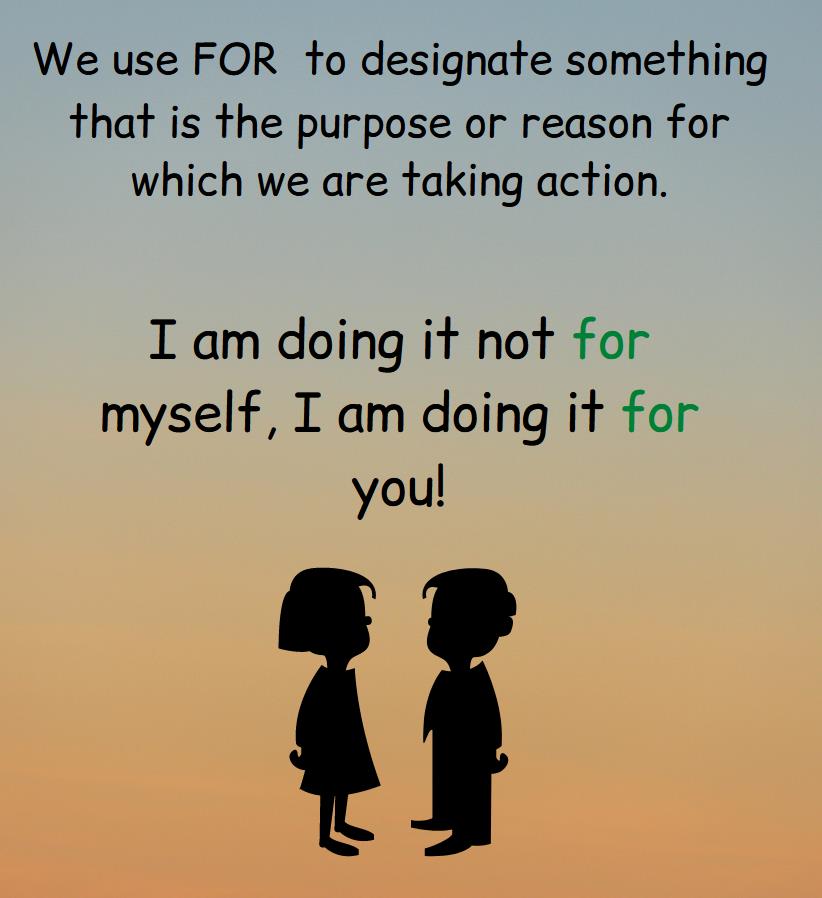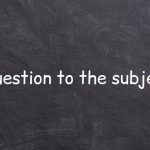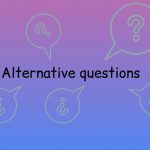Each action or event has its own purpose or reason. We use prepositions of reason and purpose to express the connection between an action and a reason or purpose.
Remember to read How to learn English with audiobooks for FREE
Why We Need Prepositions of Reason and Purpose
Take a look at an example:
The guy bought a bouquet for his girlfriend.
In this example, we see one action:
The guy bought a bouquet.
And we see the purpose or the reason why the guy did it. Because the guy has a girlfriend and he wants to give this bouquet to his girlfriend.
In this example, we use the preposition of reason and purpose for to indicate the relationship between the action and the purpose for which the action was done.
The fisherman went fishing to catch fish.
In this example, we see one action:
The fisherman went fishing.
We also see the reason or purpose why he did it:
To catch fish.
We can also make an example like this:
A fisherman went fishing to catch fish to feed his family.
In this example, we can see one action and two purposes.
Fisherman’s first purpose: To catch fish.
The second purpose: To feed his family.
In this example, we used the preposition of reason and purpose to.
The prepositions of reason and purpose are different. Take a look at another example:
The boy caught a cold because he was walking in the rain.
In this example, we used the preposition because.
All the prepositions are used to link action and reason or purpose. Nevertheless, each of the prepositions of reason and purpose has its nuances of use that you should know about.
Let’s look at such prepositions in detail. Let’s take a look at examples of their use in different sentences.

Preposition of Reason and Purpose Because of.
Because of one of the most popular prepositions of reason and purpose. We use Because of to indicate the reason why something happens.
All flights have been canceled because of fog.
The enemy won because of their superior numbers.
The dog was panting because of the hot weather.
She stopped the medication because of side effects.

Preposition Due to.
Due to is similar in meaning to because. Due to is a more formal analog.
We also use the preposition Due to when we want to emphasize that the reason is negative.
Your headaches are due to stress.
He was forced to resign due to his ill health.
In this example, we have a negative event: “forced to resign“. Therefore, we use “due to” to indicate the reason for which this negative event happened.

Preposition From.
We use the prepositions of reason and purpose from to mean something that affects what we do. Using the preposition from we show that there is something that makes us act, think or speak in a certain way.
From what I heard the company is in deep trouble.
Preposition For.
We use the preposition of reason and purpose for when we want to designate something that is the purpose or reason for which we are taking action.
I am doing it not for myself, I am doing it for you and your family.

Hello! If you would like to thank me for the articles I wrote, you can click Buy me a coffee. Thank you! ❤❤❤











Simplemente me gusta la información útil que proporciona en sus artículos. Añadiré tu blog a favoritos y lo comprobaré una vez más aquí con regularidad. ¡Estoy relativamente seguro de que aprenderé muchas cosas nuevas aquí mismo! Buena suerte para la próxima!
Hmm is anyone else having problems with the pictures on this blog loading? I’m trying to determine if its a problem on my end or if it’s the blog. Any suggestions would be greatly appreciated.